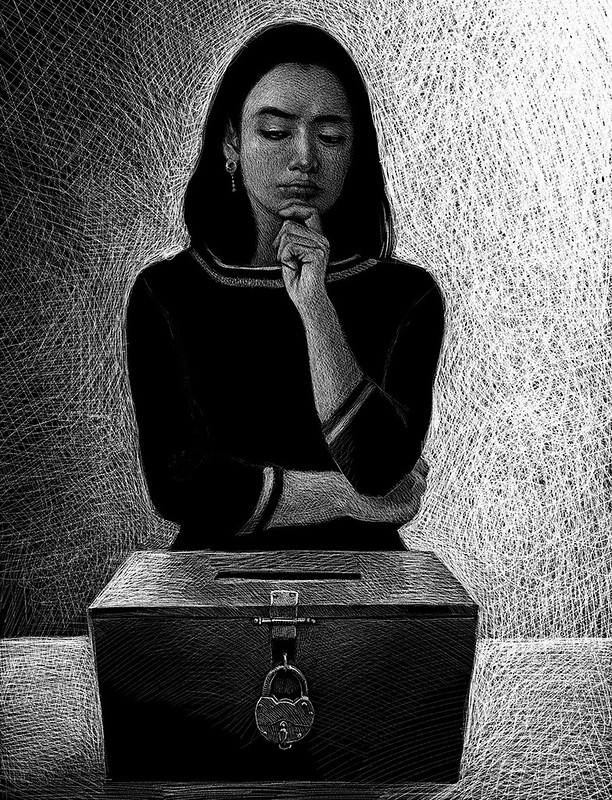Approximately a year ago, the Constitutional Convention process ended in a hard defeat when the rejection option was imposed over the approval in the exit plebiscite, allowing those who considered that the “refoundational” constitutional text was opposed to the “soul of Chile” and the “common sense of Chileans” to celebrate.
But with the rejection, the overwhelming 78.27% who voted to end the Constitution in force since the dictatorship, the 78.99% who preferred a Constitutional Convention, which later translated into 103 of its members having no militancy in traditional politics, were also relegated to oblivion, the agreement to have gender parity, with quotas for indigenous peoples, and an anti-party sentiment that made it easier for independent candidates to run for office, creating a body with clear majorities for the progressive sectors and, in particular, for the new political forces that had emerged since the social upheaval.
The hope and joy that this Convention generated in the population was abruptly lost, and the real cleavage of that moment was that of the people versus the elite, which is now clearly manifested in this second constitutional process.
The latest surveys predict a new rejection of the constitutional proposal, indicating that approximately 54% would vote against the text and that 41% of those consulted would prefer it to be rejected in the plebiscite and continue with the current Constitution (CADEM survey, as of October 1, 2023).
And here we are, analysing a constitutional process that does not really deserve it, not only because of what has been described, in that it does not respect the vote of the first plebiscite in which, synthetically, it can be said that they wanted a new constitution and to abandon the Pinochet-Lagos one; and that they did not want the politicians of the Chilean elite to participate in the drafting of the text. In both cases the vote was categorical. In spite of all this, the political elite set up this farce of the Constitutional Council, which prevented more than six million voters (null, blank and people who did not vote despite the obligation to do so) from participating in the election of councillors.
In this context of a void of power, of civil disobedience to the process proposed by the elite, power insists on giving legal recognition to this imposed process which, due to this self-marginalisation, was left with most of its members of right-wing ideological line; generating the absurdity that those who had no intention of modifying the Pinochet-Lagos Constitution, are the ones who were left with the majority to draw up a new constitutional proposal for Chile.
Therefore, it is not surprising to see that the majority of the votes are against, if not even those who are drafting it have any interest in having a new constitution, and neither do those who have created the void for this new process. We are faced with a situation in which only the party elite is convinced that this new constitution is necessary to close this stage of constitutional substitution.
For them, what its contents are, and if they are a real improvement for democracy, if they generate better conditions for social, political, economic and cultural development, is a matter of secondary importance, compared to their need to close this window of sovereignty opened by the social outburst. This, and no other, is the only interest of the elite. An interest that is reinforced by all the paid opinion makers in the mass media, who say that in the face of the irrational proposals of conservatism, the only way to have a new constitution is to drop all the amendments of the right wing and stick with the initial proposal of “the experts”, defined by the political parties. This is the discourse heard in all political programmes; they are hammering on “the public opinion” (ex-citizenship), to convince them to close the process of a new constitution.
In this scenario, where the proposal of the experts is already a disaster, we could detail the agreements of the right wing in their amendments, to the constitution in elaboration, to close the way to all the claims raised for decades, by the action of the organized people, in matters of public policies of health, education, housing, work, social security, participation, gender equality, recognition of the Native Peoples, recognition of diversities, respect for the environment and Human Rights and public safety.
But what is the point of commenting on the barbarities of anti-humanism in this pseudo-process, if it is clear that everything that is being said is, in the end, just a light show, a “staging”, which has no certain destination, because in this way things are being done, it is not possible to remove it from the constitution that gives guarantees to all Chilean men and women.
A new constitution in the 21st century must necessarily be broadly participatory, it must be built by the people in a true Sovereign Constituent Assembly, where each person, regardless of their situation, their geographical location, has the right and the responsibility to contribute to the discussion of the central elements of a new democratic constitution for Chile.
This purpose will remain pending for the time being, since such a project is blocked by the political and mercantile elite of the country. But we will continue with our determination to work tirelessly to open as soon as possible the ways for the sovereign, real and direct participation of the people.
So today, forced by these imposed circumstances, all that remains for us to do is to promote, with all possible force and clarity, the “Vote Against” in the exit plebiscite next December.
Collaborators: M. Angelica Alvear Montecinos; Guillermo Garcés Parada; Sandra Arriola Oporto; Ricardo Lisboa Henríquez and César Anguita Sanhueza. Public Opinion Commission






